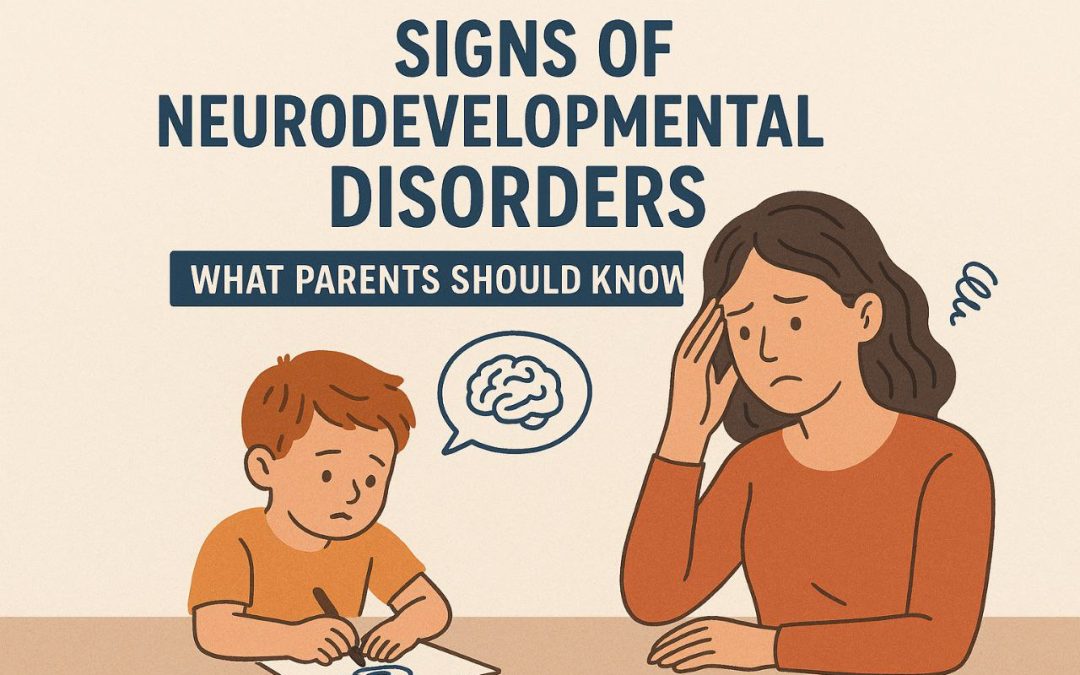Every child grows at their own pace. Some speak earlier, some later. Some love social play, others are more independent. But sometimes, persistent differences in learning, communication, or behavior can signal a neurodevelopmental disorder and noticing these signs early can change your child’s future.
Key Early Signs to Watch For
– Communication Delays: Limited speech, difficulty understanding instructions, or very late talking.
– Social Challenges: Avoiding eye contact, trouble making friends, or not responding to social cues.
– Behavioral Patterns: Repetitive movements (like hand-flapping), strong fixations, or intense resistance to changes in routine.
– Learning Difficulties: Struggling with numbers, letters, or comprehension despite repeated effort.
– Attention and Focus Issues: Easily distracted, unable to follow multi-step instructions, or constantly “on the move.”
Why Early Support Matters
Early intervention can help children build skills, confidence, and independence. It also reduces parental stress and allows schools to provide the right accommodations.
Important: Noticing one sign does not mean something is “wrong” with your child—it simply means you can take the next step to support them.
Next Steps for Parents
- Observe and Document: Keep notes of behaviors or learning patterns.
- Seek Professional Assessment: Early evaluation can clarify your child’s needs.
- Start Small Changes at Home: Use structured routines, visual cues, and positive reinforcement.
- Connect with Support Networks: Join parent groups or programs like LearningLink Africa for guidance and community.
Your child’s difference is not a limitation it’s a call to approach learning with understanding and love.

